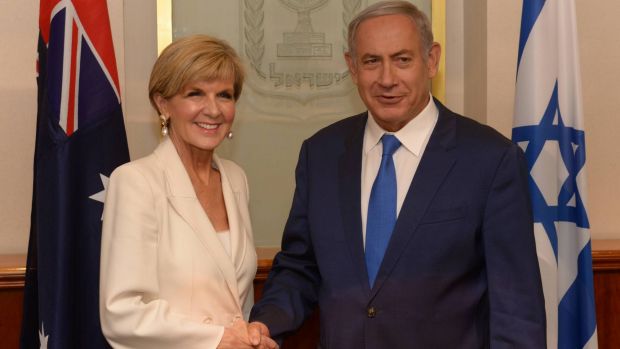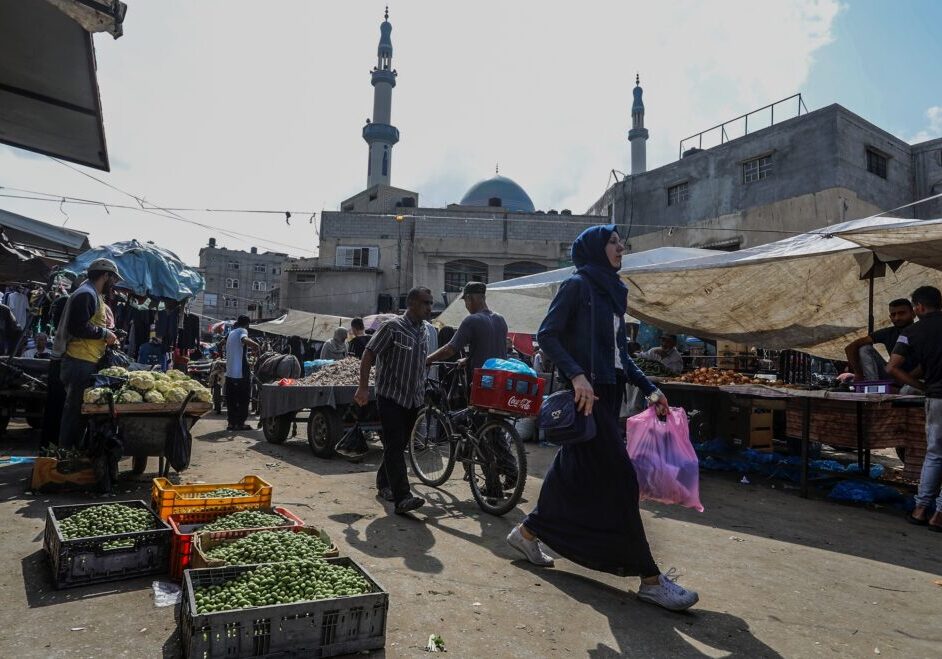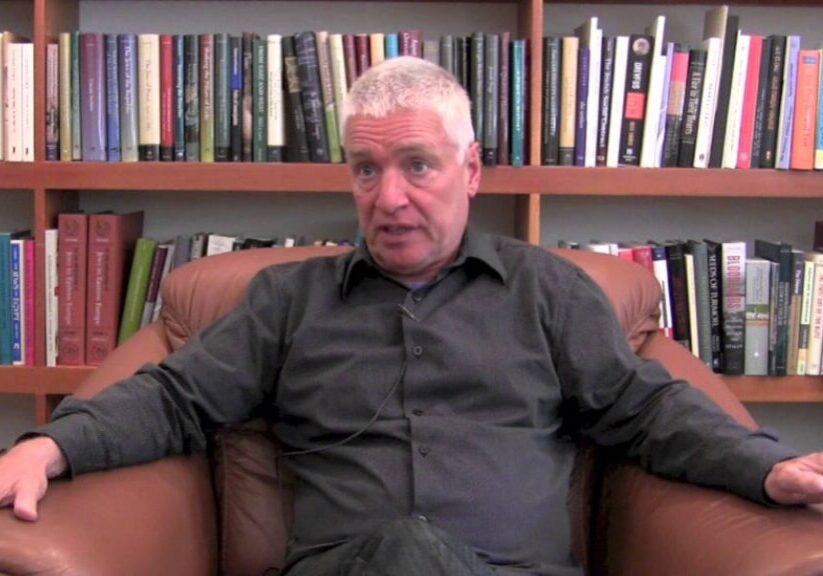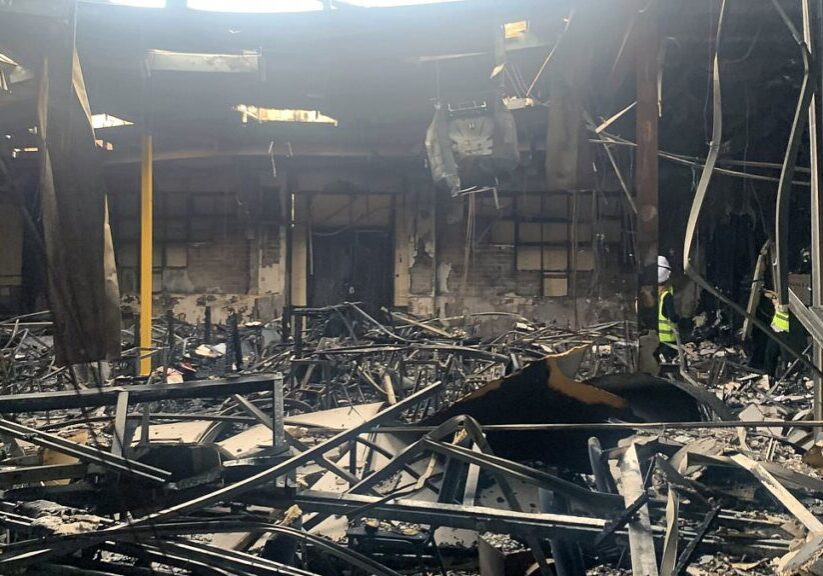Australia/Israel Review
Editorial: A Meeting of Minds
Sep 23, 2016 | Colin Rubenstein

Colin Rubenstein
During her recent visit to Israel and the Palestinian Authority at the beginning of September, Foreign Minister Julie Bishop once again put her wisdom and diplomatic skill on display in navigating the diplomatic minefields of the simmering conflict, while at the same time deftly strengthening Australian-Israel ties.
This difficult assignment required tact and fortitude, but also the determination to untangle Australia from the groupthink mentality often seen at the United Nations and elsewhere when dealing with Israelis and Palestinians.
This groupthink often seems to simply pander to a narrative promoted by the Palestinian leadership, the Arab bloc, and politicised NGOs rather than weigh the facts and see things the way they actually are.
Take, for example, the recent surreal situation where, as reported in last month’s AIR, the UN reissued a zombie-like resolution including a call for Israel to return the Golan Heights captured in the 1967 war to Syria – a country that hasn’t had effective control of its side of the Golan for years.
Even more recently, the White House and State Department criticised Israel in harsh terms for “approving hundreds of houses” in West Bank settlements.
Yet the facts showed nearly all of the “houses” approved were actually rooms in a single medical facility – a nursing home – while all the approvals were in authorised Green Line settlements Israel is expected to retain in any conceivable peace agreement.
Questioned by the ABC on whether Australia joined the US’ “concern” over this particular settlement flap, Foreign Minister Bishop refused to be drawn, only saying that she “raised the issue of settlements and other issues that may well damage the potential for the peace process to get under way again.”
Ms. Bishop’s reply reflects a realistic viewpoint that she has expressed in different ways and on several occasions – that settlements are only one issue impacting the peace process.
Many others obstacles exist, especially on the Palestinian side, such as Palestinian Authority (PA) government-sponsored incitement to violence, corruption and the lack of democracy in the PA, as underlined by the postponement of the long overdue municipal elections scheduled for early October.
Then there is the matter of the rejectionist terror group Hamas, which maintains a brutal, dictatorial grip over Gaza and has allegedly embezzled millions of humanitarian aid dollars and vast amounts of building materials to construct rockets and attack tunnels.
In 2014, Ms. Bishop took a principled stand, disputing the charge that Israeli settlements are inherently illegal under international law under the Fourth Geneva Convention. Not only do many highly respected international law experts agree with her, there is unquestionably a double standard being used against Israel by those who don’t.
As AIJAC’s Tzvi Fleischer points out in this edition, a recent study by US international law professor Eugene Kontorovich shows that the UN and Western governments virtually never described as “illegal” large-scale settlement activity by occupying powers in places such as East Timor, northern Cyprus, Western Sahara, Lebanon, Cambodia, Azerbaijani Nagorno-Karabakh, and Georgian Abkhazia and Ukrainian Crimea.
Even if you believe the Fourth Geneva Convention applies to the situation in the West Bank, Israel is being criticised based on an interpretation of that agreement which is simply never applied to any comparable conflict.
To be clear, Foreign Minister Bishop’s visit to Israel wasn’t primarily about the conflict, and certainly not about settlements, but rather followed up on two important matters.
First, she re-extended an invitation to Israeli Prime Minister Binyamin Netanyahu to visit Australia. While a previous visit scheduled for 2014 was postponed by the deteriorating security situation preceding the last Gaza war, both Bishop and Netanyahu were eager to put a visit back on the agenda for early next year.
The proposed visit, which would be the first by a sitting Israeli Prime Minister, is an opportunity to take Australian-Israeli ties to the next level, including by perhaps finalising a Double Taxation Agreement currently being negotiated which would further assist Australian companies seeking to access Israeli technology.
Ms. Bishop’s second agenda item during her visit was to follow up on Australia’s high-tech collaborations with Israel as part of the Abbott and Turnbull governments’ forward-thinking “Landing Pad” entrepreneurial scheme.
Her meetings on the subject with Israeli leaders and entrepreneurs in Jerusalem and Tel Aviv stood in stark contrast to her meeting with Palestinian Economic Minister Abeer Odeh in Ramallah.
Instead of taking the opportunity to engage with the Foreign Minister on the ways the Palestinian Authority can facilitate similar collaborations between Palestinian and Australian entrepreneurs, Odeh reportedly mostly spent the meeting with Bishop airing Palestinian grievances with Israel.
Foreign Minister Bishop’s short visit did not include a meeting with former Israeli President and 93-year-old revered elder statesman Shimon Peres – who sadly suffered a debilitating stroke a few days after she left.
Even so, the need for Peres’ as yet unfulfilled visionary dream of a New Middle East – where both the Palestinians and Arab states would focus on building a prosperous and peaceful future instead of running themselves ragged on a treadmill of conflict, with disputes settled through goodwill and conciliation, not violence – could not have been lost on her, given the starkly contrasting political landscapes and agendas she encountered in Tel Aviv and Jerusalem compared to Ramallah.
It is a vision, after all, that was very much in parallel to her own agenda this trip, and indeed to bipartisan Australian foreign policy for the Middle East.
Tags: Australasia






